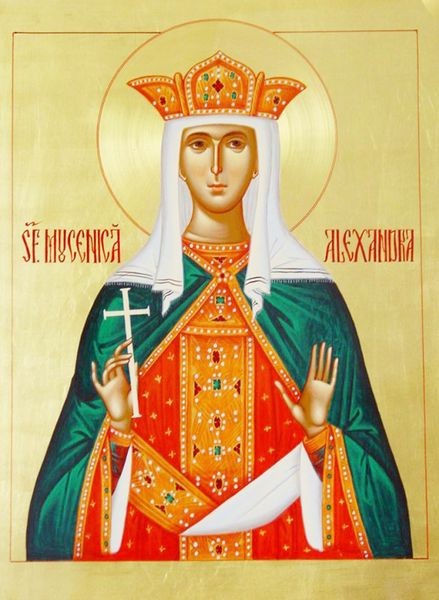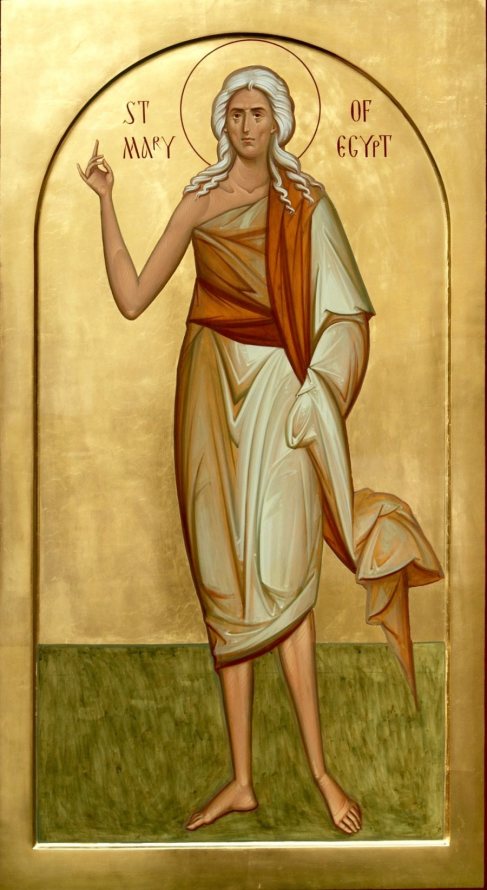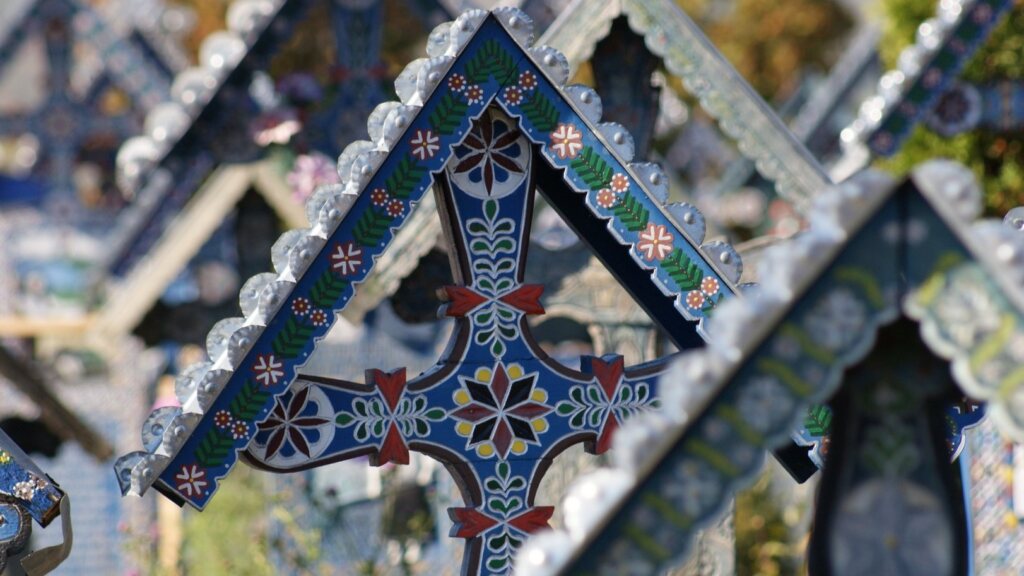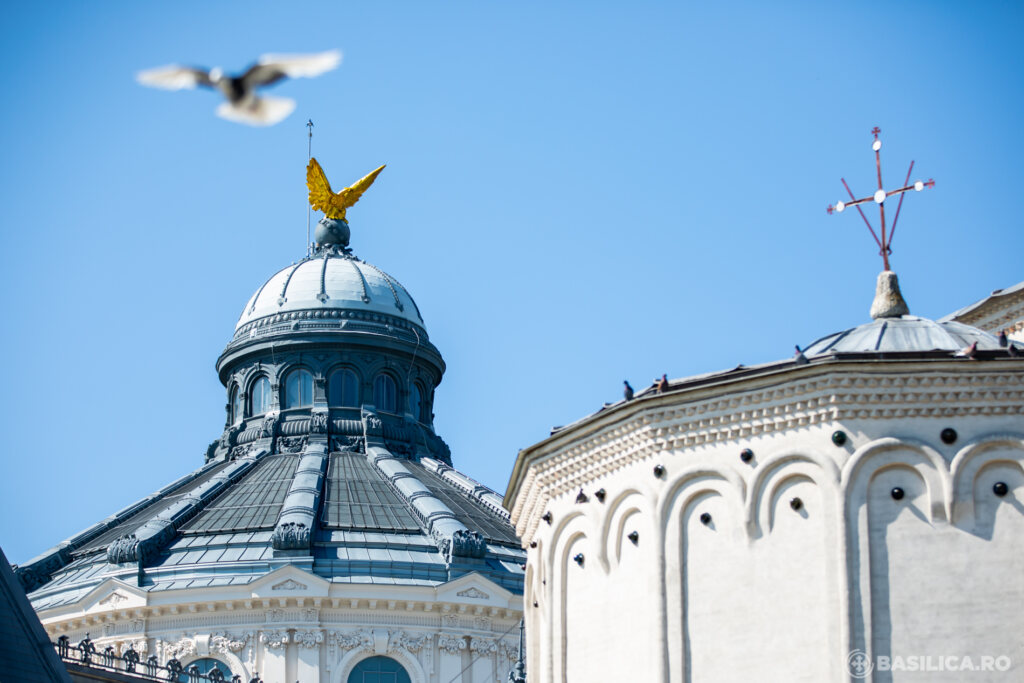Orthodox Calendar April 21
Hieromartyr Januarius Bishop of Benevento
Hieromartyr Januarius Bishop of Benevento, and the deacons Proculus, Sossius and Faustus, Desiderius the Reader, Eutychius and Acution suffered martyrdom for Christ about the year 305 during the persecution ordered by the emperor Diocletian (284-305).
They arrested Saint Januarius and led him to trial before Menignus, the governor of Campagna (central Italy). Because of his firm confession of Christianity, they threw the saint into a red-hot furnace. But like the Babylonian youths, he came out unharmed. Then at Menignus’s command, they stretched him out on a bench and beat him with iron rods until his bones were exposed.
In the crowd were Deacon Faustus and the Reader Desiderius, who wept at the sight of their bishop’s suffering. The pagans surmised that they were Christians, and threw them into prison with the hieromartyr Januarius, in the city of Puteolum. At this prison were two deacons who had been jailed for confessing Christ: Saints Sossius and Proculus, and also two laymen, Saints Eutychius and Acution.
On the following morning they led out all the martyrs into the circus to be torn to pieces by wild beasts, but the beasts would not touch them. Menignus claimed that all the miracles were due to sorcery on the part of the Christians, and immediately he became blinded and cried out for help. The gentle hieromartyr Januarius prayed for his healing, and Menignus recovered his sight. The torturer’s blindness of soul, however, was not healed. He accused the Christians of sorcery, and ordered the martyrs beheaded before the walls of the city (+ 305).
Christians from surrounding cities took up the bodies of the holy martyrs for burial, and those of each city took one, in order to have an intercessor before God. The inhabitants of Neapolis (Naples) took the body of the hieromartyr Januarius. With the body, they also collected his dried blood.
Since the fifteenth century, the blood liquifies when the container is placed near another relic, believed to be the martyr’s head. Many miracles proceeded from the relics of the hieromartyr Januarius. During an eruption of Vesuvius around 431, the inhabitants of the city prayed to Saint Januarius to help them. The lava stopped, and did not reach the city.
Troparion — Tone 3
Naples has found you a champion in dangers, / O Januarius, our glorious father. / You delivered her from plague, famine and affliction, / and from the fire of Vesuvius. / With faith and love we venerate you and honor your holy relics!
Hieromartyr Theodore of Perge
The Holy Martyrs Theodore, his mother Philippa, Dioscorus, Socrates and Dionysius suffered during the reign of the emperor Antoninus Pius (138-161) in Perge, Pamphylia. When they were conscripting robust and healthy young men for military service, then they led the youth Theodore and the others to the military commander Theodotus.
The military commander ordered the youth to offer sacrifice to idols, but the martyr submitted neither to persuasion nor threats. Then the military commander had him placed on a red-hot plate and poured liquid tar on him. Suddenly, there was an earthquake, and a torrent of water gushed forth from the ground and extinguished the fire.
The martyr Theodore remained unharmed, and gave praise to God. The commander ascribed his deliverance to sorcery, so Saint Theodore suggested that he test the power of his gods by putting the pagan priest Dioscorus through the same trials.
The commander told Dioscorus to lie upon the red-hot plate, and call on the help of Zeus. Saint Dioscorus replied that he believed in Christ, and he was prepared to throw the idol of Zeus into the fire. Again the military commander commanded him to get on the heated plate. Saint Dioscorus fell at the knees of Saint Theodore, asking that he pray for him. Then he got onto the plate, crying out: “I thank You, Lord Jesus Christ, that You have numbered me among Your servants. Accept my soul in peace.” Then he died, having been delivered from terrible torment.
They continued to torture Saint Theodore. They tied him to wild horses, which began to run. But at the city walls the horses fell down and collapsed, and the martyr Theodore remained unharmed. Two soldiers, Socrates and Dionysius, saw how a fiery chariot came down from the heavens to Saint Theodore, on which the martyr was carried off.
In the morning, the military commander ordered soldiers to look upon the burned bodies of the martyrs. The soldiers returned and reported that the three youths were unharmed. Saint Theodore’s mother, Philippa, encouraged the martyrs in their act.
The military commander told Saint Philippa to save her son, by urging him to offer sacrifice to the idols. Saint Philippa said that when her son was born it was revealed to her that he would be crucified for Christ. Hearing this, the military commander commanded them to crucify Saint Theodore, and to cut off the heads of the other martyrs. Saint Theodore hung on the cross for three days, offering prayers to God until he finally died.
Troparion — Tone 4
Your holy martyrs O Lord, / through their sufferings have received incorruptible crowns from You, our God. / For having Your strength, they laid low their adversaries, / and shattered the powerless boldness of demons. / Through their intercessions, save our souls!
Martyr Alexandra the Empress
The Holy Empress Alexandra was the wife of Diocletian (284-305). Her supposed death was described in the Martyrdom of Saint George, which was written immediately after his death. The empress, however, received the crown of martyrdom several years later, in 314.
Many events occurred during these years. In 305 the emperor Diocletian resigned the throne and power passed to his co-ruler Maximian Galerius (305-311), a fanatic pagan, as well as a coarse and fierce soldier. His wife was Saint Valeria, the daughter of the holy Empress Alexandra, whom Diocletian had given in marriage against her will.
Saint Alexandra raised her daughter in Christian piety. When Galerius died, the emperor Maximinus sought her hand in marriage. When he was refused, he banished Saint Valeria to Syria, where she lived with her mother.
After the death of Maximinus in 311 the mother and daughter arrived in Nicomedia, trusting in the mercy of the emperor Licinius (311-324). Together with Saint Constantine, he had subscribed to the Edict of Milan, which gave Christians the freedom of religion, but secretly he remained an enemy of Christianity. Licinius gave orders to execute the holy Empress Alexandra and her daughter Valeria. They were beheaded, and their bodies thrown into the sea.

5th Sunday of Great Lent (St Mary of Egypt)
St Mary of Egypt – Read the life.

Gospel
Mark 10: 32-45
Now they were on the road, going up to Jerusalem, and Jesus was going before them; and they were amazed. And as they followed they were afraid. Then He took the twelve aside again and began to tell them the things that would happen to Him:
“Behold, we are going up to Jerusalem, and the Son of Man will be betrayed to the chief priests and to the scribes; and they will condemn Him to death and deliver Him to the Gentiles;
and they will mock Him, and scourge Him, and spit on Him, and kill Him. And the third day He will rise again.”
Then James and John, the sons of Zebedee, came to Him, saying, “Teacher, we want You to do for us whatever we ask.”
And He said to them, “What do you want Me to do for you?”
They said to Him, “Grant us that we may sit, one on Your right hand and the other on Your left, in Your glory.”
But Jesus said to them, “You do not know what you ask. Are you able to drink the cup that I drink, and be baptized with the baptism that I am baptized with?”
They said to Him, “We are able.” So Jesus said to them, “You will indeed drink the cup that I drink, and with the baptism I am baptized with you will be baptized;
but to sit on My right hand and on My left is not Mine to give, but it is for those for whom it is prepared.”
And when the ten heard it, they began to be greatly displeased with James and John.
But Jesus called them to Himself and said to them, “You know that those who are considered rulers over the Gentiles lord it over them, and their great ones exercise authority over them.
Yet it shall not be so among you; but whoever desires to become great among you shall be your servant.
And whoever of you desires to be first shall be slave of all.
For even the Son of Man did not come to be served, but to serve, and to give His life a ransom for many.”
Luke 7: 36-50
Then one of the Pharisees asked Him to eat with him. And He went to the Pharisee’s house, and sat down to eat. And behold, a woman in the city who was a sinner, when she knew that Jesus sat at the table in the Pharisee’s house, brought an alabaster flask of fragrant oil, and stood at His feet behind Him weeping; and she began to wash His feet with her tears, and wiped them with the hair of her head; and she kissed His feet and anointed them with the fragrant oil.
Now when the Pharisee who had invited Him saw this, he spoke to himself, saying, “This Man, if He were a prophet, would know who and what manner of woman this is who is touching Him, for she is a sinner.” And Jesus answered and said to him, “Simon, I have something to say to you.” So he said, “Teacher, say it.” “There was a certain creditor who had two debtors.
One owed five hundred denarii, and the other fifty. And when they had nothing with which to repay, he freely forgave them both. Tell Me, therefore, which of them will love him more?” Simon answered and said, “I suppose the one whom he forgave more.” And He said to him, “You have rightly judged.” Then He turned to the woman and said to Simon, “Do you see this woman? I entered your house; you gave Me no water for My feet, but she has washed My feet with her tears and wiped them with the hair of her head. You gave Me no kiss, but this woman has not ceased to kiss My feet since the time I came in.
You did not anoint My head with oil, but this woman has anointed My feet with fragrant oil. Therefore I say to you, her sins, which are many, are forgiven, for she loved much. But to whom little is forgiven, the same loves little.” Then He said to her, “Your sins are forgiven.” And those who sat at the table with Him began to say to themselves, “Who is this who even forgives sins?” Then He said to the woman, “Your faith has saved you. Go in peace.”






